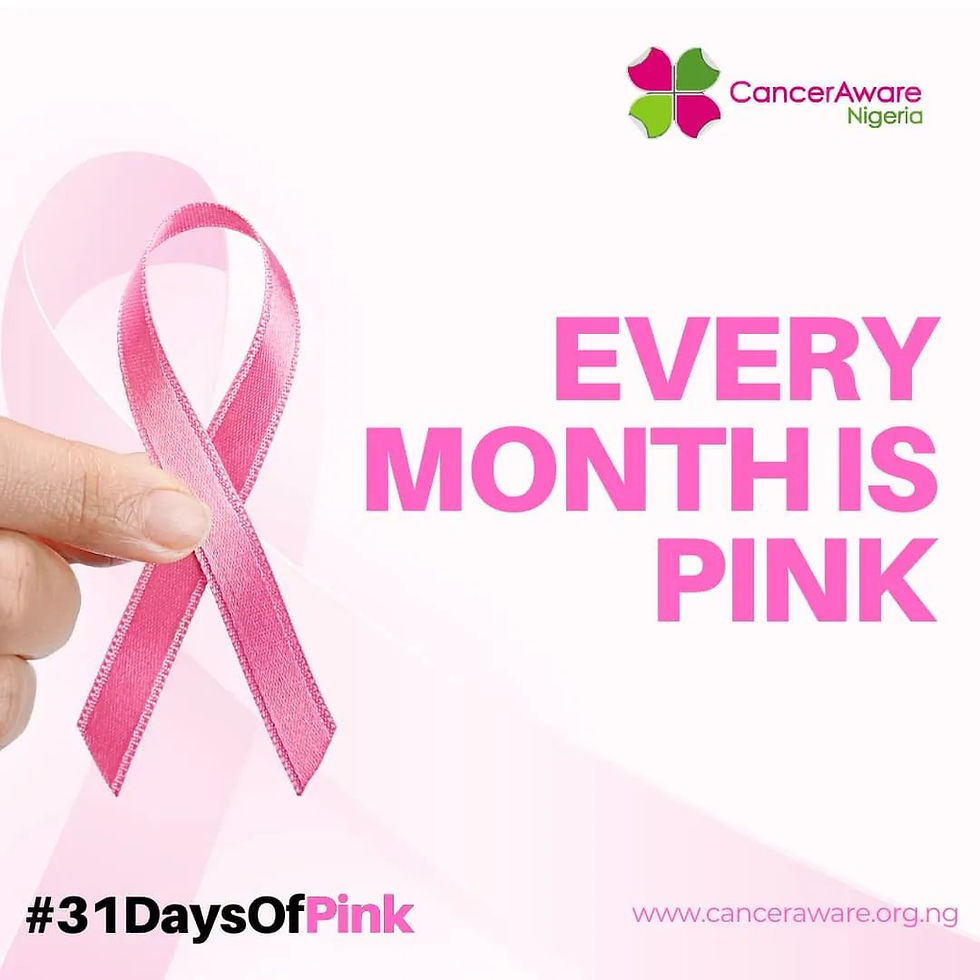Genetics and Breast Cancer
- CancerAware

- Oct 12, 2023
- 2 min read

Although most women diagnosed with Breast Cancer are the first in their family to have the condition, in some cases, genetics play a significant role in determining an individual's susceptibility to the condition.
While there are many risk factors for breast cancer including being a woman, age, race/ethnicity and lifestyle choices - genetics also play a significant role.
About 5% to 10% of breast cancers are thought to be hereditary, meaning they are caused by gene mutations that are passed down from parents to children.
The most common genes associated with hereditary breast cancer are BRCA1 and BRCA2. Women who inherit a mutation in one of these genes have a significantly increased risk of developing breast and ovarian cancer.
Women with a family history of breast cancer, especially if they have first degree relatives (mother, sister, daughter) who have been diagnosed with the condition may be at increased risk of developing breast cancer themselves.
If you have a strong family history of breast cancer, you may want to talk to your doctor about genetic testing to see if you have a mutation in one of the genes associated with hereditary breast cancer. Individuals with a family history of breast cancer may opt for genetic testing to assess their risk..
.However, it's crucial to understand that not all breast cancer cases are linked to genetics. Most breast cancers occur in individuals with no family history of the disease.
How can I manage my breast cancer risk?
There are a number of things you can do to manage your breast cancer risk, including:
Maintaining a healthy weight
Exercising regularly
Eating a healthy diet
Avoiding alcohol consumption
Not smoking
Getting regular mammograms and breast exams
Avoiding unsafe personal care products
If you have a family history of breast cancer, you should start breast screening earlier than the recommended guidelines.




Comments